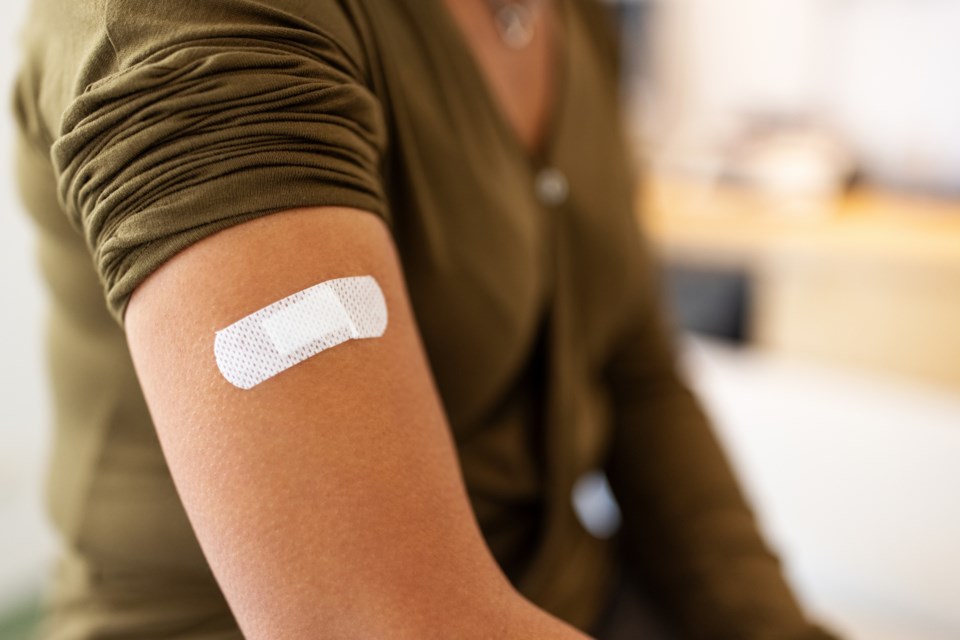A new adhesive bandage infused with gold nanoparticles can quickly detect covid-19 antibodies in a person’s bloodstream.
Developed by researchers at NYU Abu Dhabi, the bandage technology is affordable and easy to use. It is able to identify the IgM and IgG antibodies, which are naturally produced as a result of SARS-CoV-2 infection, and therefore serve as valuable biomarkers.
The test can be used at home by applying the special adhesive bandage to a pinprick fingertip. It works with gold nanoparticles, which are one billionth of a meter in diameter and have specific keys, called antigens, attached to them that are unique to the SARS-CoV-2.
These keys are engineered using nanotechnology approaches to recognize and bind to IgM and IgG antibodies with high specificity and sensitivity, paralleled with key-lock mechanisms. When this occurs, a colour change indicates, within minutes, the individual’s infection status – not infected or infected with early immune, active immune, or immune responses.
“Moving forward, we will explore the potential of this technology in detecting and screening other emerging viral infections. We also plan to incorporate biodegradable porous microneedles into the bandage, enabling efficient finger pricking via in-situ puncturing,” Muhammedin Deliorman, one of the authors of the study that describes the device, said in a media statement.
For Deliorman and his co-authors, real-time screening of viral infections using tests like the adhesive bandage can play a crucial role in preventing future outbreaks and pandemics by enabling early detection.
“If the large-scale usage of such adhesive bandage tests is combined with smartphone readouts and dedicated mobile apps, it opens up possibilities for generating location-based heat maps by local governments and health authorities to allow for the early identification of infected individuals, including those who are asymptomatic,” lead researcher Mohammad Qasaimeh said.
“By promptly isolating and treating these individuals, the spread of the virus can be significantly reduced, preventing it from reaching a larger population.”



